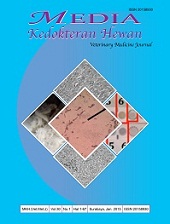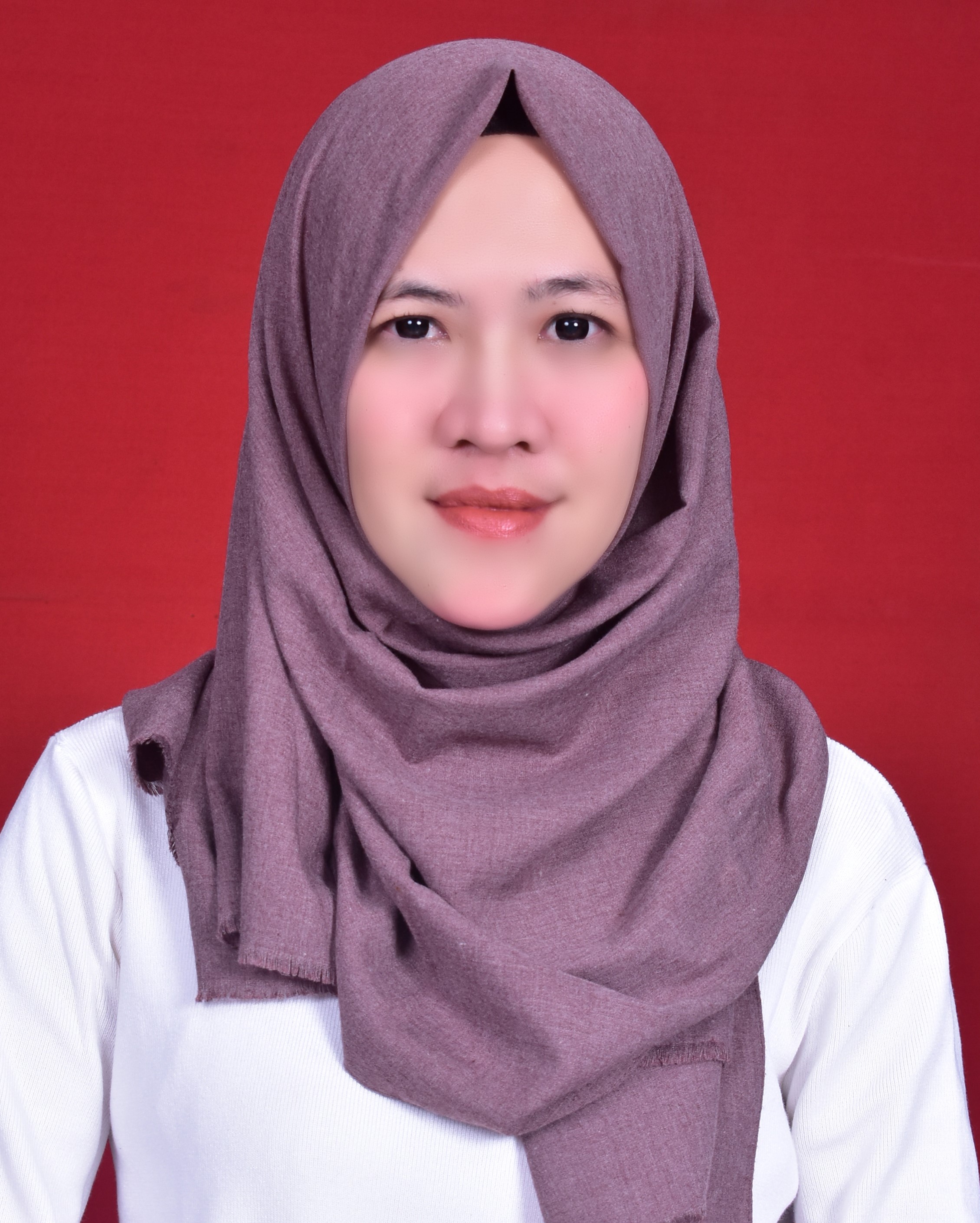Certificate Number: 230/E/KPT/2022

This journal published original research, literature review, and case report in the scope of veterinary medicine, animal sciences and biotechnology of veterinary medicine.
The Media Kedokteran Hewan covers scientific and technological aspects of major fields in veterinary medicine such as veterinary biomedical sciences, veterinary microbiology and parasitology, veterinary pathobiology, veterinary public health, veterinary clinical sciences, veterinary reproductive, veterinary humanities and social sciences, livestock and poultry medicine. The corresponding subfields are as follows:
Our journal is more dedicated to research on Zoonotic Diseases and the dynamics of Emerging and re-Emerging Disease.

Media Kedokteran Hewan (MKH) conducts a double-blind review process, which means the authors and peer-reviewers do not know each other's identity. Initially, all manuscripts submitted to the journal are assessed by the editor-in-chief and editorial team. The aim of initial editorial assessment is to decide whether to send a manuscript for peer review or to reject it. The rejection is based on the novelty and the relevancy with the focus and scope of the journal. After passing the initial editorial assessment then the manuscript will be sent to peer reviewers. The decision whether to accept the manuscript is based on peer reviewers’ recommendation. The final decision is made by the editor-in-chief by considering the recommendation from reviewers.
Initial editorial assessment
The editor can reject the manuscript at this initial stage if it does not fit the focus and scope of the journal.
Peer-review process
After passing the initial editorial assessment, then peer-review process is started. At least 2 peer-reviewers will evaluate the manuscript, invited based on their expertise in the related field. Reviewers are expected to provide an evaluation and comments within 2 weeks. Editor-in-Chief considers the reviews and determines whether to accept, reject, or request revision. The decision after the peer-review process will be sent to the authors.
Authors’ revision
Authors will be asked to revise the manuscript based on the suggestion from peer-reviewers. Authors will be given a certain amount of time ranging between 1 to 4 weeks, depending on the review reports. However, if the authors need additional time to do revision, then they could write an email to the editor-in-chief asking for an extension.
Editorial decision
Editorial team will assess the revised manuscript to ensure that all the peer reviewers' comments have been properly addressed by the authors. The Editor-in-Chief will make a decision upon the revised manuscript. The decision is absolute and free of conflicts of interest.
The article review process usually takes an average of 6-8 weeks. This review period depends on the amount of time the editor and peer reviewers spend reviewing the manuscript. The time interval from the author's submission to the final decision varies, depending on the time required for the peer review process and the revision process. The time from submission to publication is approximately four months.
Media Kedokteran Hewan (MKH) (established 1985) publishes all aspects of veterinary science and its related subjects. Media Kedokteran Hewan (MKH) publishes periodically three times a year (January, May, and September). Media Kedokteran Hewan (MKH) publishes original research, literature review, and case report with an emphasis on novel information of excellent scientific and/or clinical quality, Relevant to domestic animals, wildlife, exotic animal, aquatic animals (including fish), and biotechnology of veterinary medicine.
This journal provides immediate open access to its content on the principle that making research freely available to the public supports a greater global exchange of knowledge.
Media Kedokteran Hewan by Unair is licensed under a Creative Commons Attribution-ShareAlike 4.0 International License.
This journal utilizes the CLOCKSS system to create a distributed archiving system among participating libraries and permits those libraries to create permanent archives of the journal for purposes of preservation and restoration.
Background:
Authors are encouraged to consult the Committee on Publication Ethics (COPE) International Standards (http://publicationethics.org/) for guidance on matters not covered by these guidelines.
Submission Declaration and Verification:
By submitting an article, authors affirm that the work has not been previously published, except as an abstract, lecture, or academic thesis, and that it is not under review elsewhere. All authors and relevant authorities must approve the submission. Once accepted, the article cannot be republished in the same form, in any language, including electronically, without written consent from the copyright holder.
Contributors:
Each author must have made a significant contribution to the research or article preparation, and their specific roles should be declared. It must also be disclosed that all authors have approved the final version of the manuscript.
Publication and Authorship:
Authorship is reserved for those who have substantially contributed to the research concept, design, execution, data collection, or analysis. Others who contributed but do not meet these criteria should be acknowledged. The corresponding author is responsible for ensuring all appropriate co-authors are included and that they have approved the final version for submission.
Authors' Responsibilities:
Authors are expected to follow Media Kedokteran Hewan (MKH) peer review policies, submitting original, accurate, and non-plagiarized data. They must be transparent about previous publications of related data, providing proper citations or acknowledgments where necessary. Authors must also ensure that animal research is conducted ethically and report any conflicts of interest. They should be open to corrections, retractions, or clarifications when needed.
Reviewers' Responsibilities:
Reviewers should provide objective feedback within a set timeframe, aiding in the decision to accept or improve the paper. They must notify the editor of any content that appears similar to previously published or submitted work. Reviewers must avoid conflicts of interest and maintain confidentiality of the material reviewed.
Editors' Responsibilities:
Editors have full authority to accept or reject a submission and must avoid conflicts of interest in doing so. They should be impartial, making decisions solely based on academic merit, without bias related to the authors’ gender, ethnicity, religion, or other personal factors. Editors should also protect the anonymity of reviewers and ensure that commercial interests do not influence editorial decisions.
Publishing Ethics Issues:
Throughout the publication process, authors, reviewers, and editors are expected to uphold the integrity of the academic record. Ethical and intellectual principles should always take precedence over commercial considerations.
Use of Generative AI and AI-Assisted Technologies
A) For Authors
Authors may use generative AI or AI-assisted tools (ChatGPT, Grammarly, etc) only for language editing, paraphrasing, or grammar correction.
The use of AI for idea generation, data analysis, or scientific interpretation is not permitted.
Authors must include a declaration in the manuscript specifying the AI tool, version, and purpose, for example:
ChatGPT (OpenAI, version 4.0) was utilized as an AI tool to assist with paraphrasing and English grammar correction. The authors affirm that AI was not involved in authorship, data analysis, or interpretation of results.
B) For Reviewers
Reviewers must not use AI tools to analyze or summarize manuscripts, as this may compromise confidentiality.
AI may only be used to check the language or clarity of the reviewer’s own comments.
C) For Editors
Editors may use AI tools only for administraadministrative or linguistic purposes, such as improving clarity in correspondence.
AI must not be used for editorial decision making or manuscript evaluation.
There is no article processing charges for all article published in our journal.
Submitted manuscript will be checked using Turnitin software. If the similarity report is less than 20%, then the manuscript will be considered for further review.




| Semua | Sejak 2020 | |
|---|---|---|
| Kutipan | 1383 | 629 |
| indeks-h | 15 | 12 |
| indeks-i10 | 42 | 16 |
